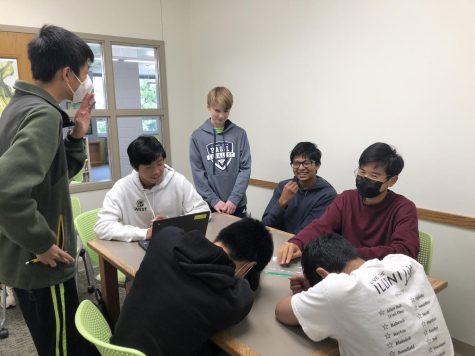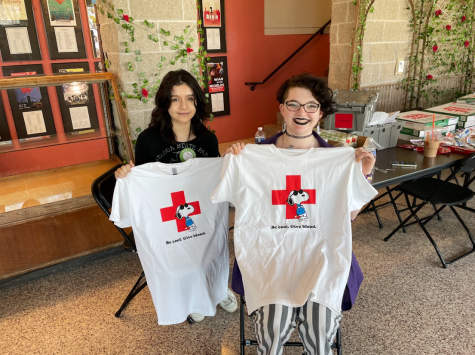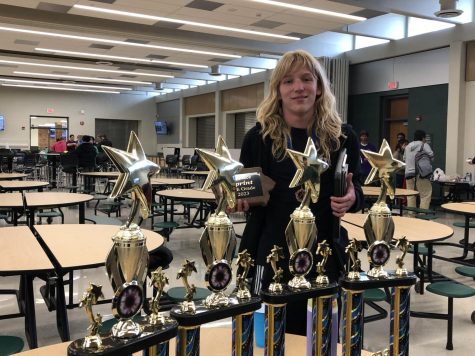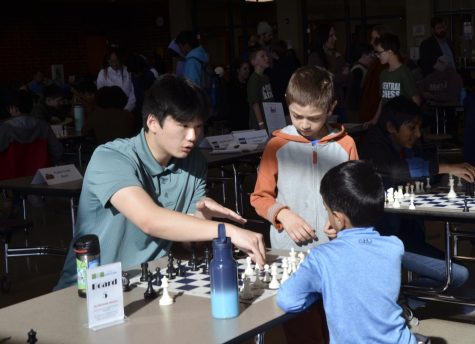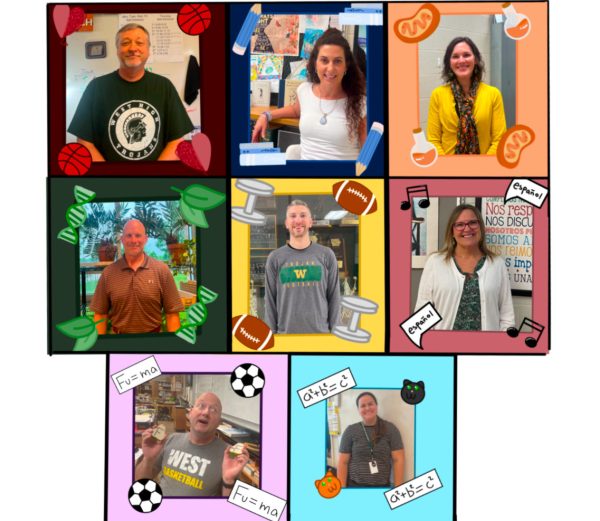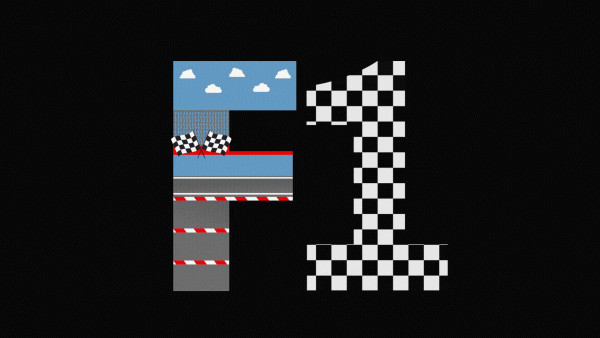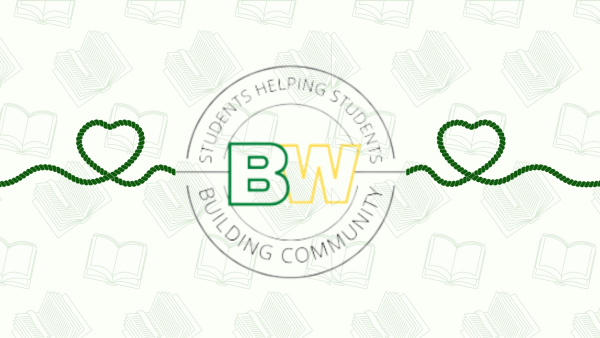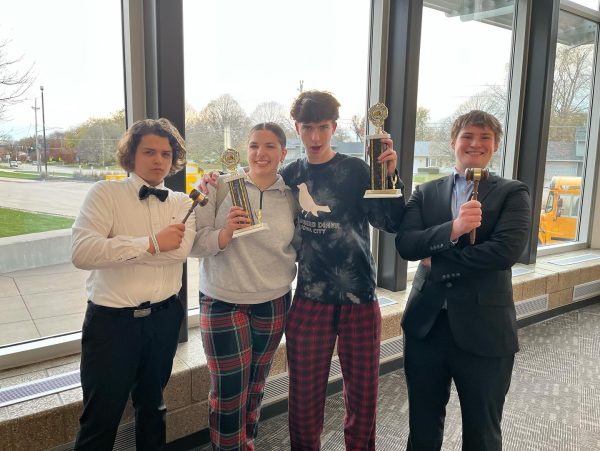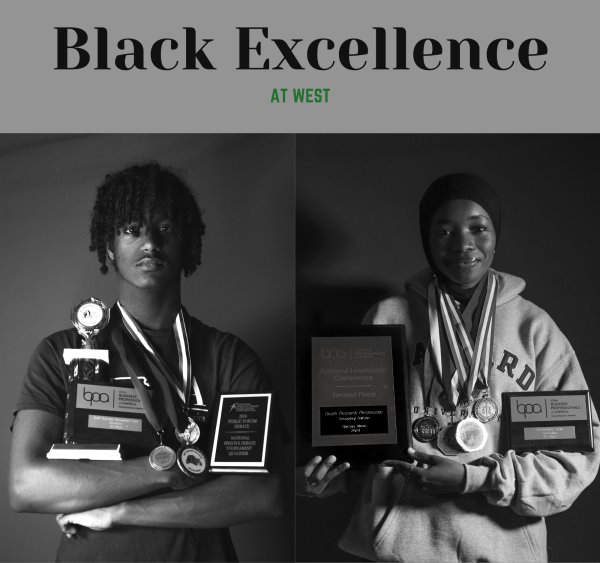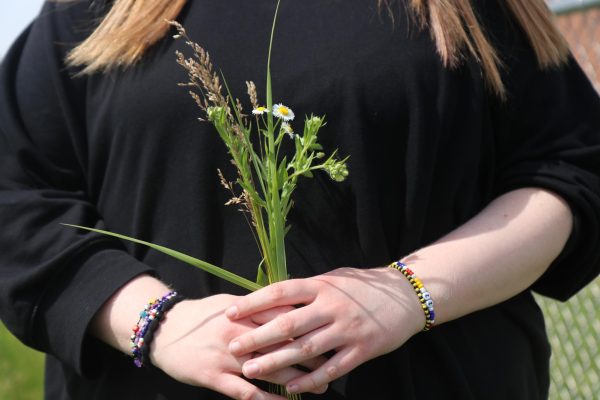West High goes green
Members of West High’s Biology Olympiad team collaborate to initiate a composting program.
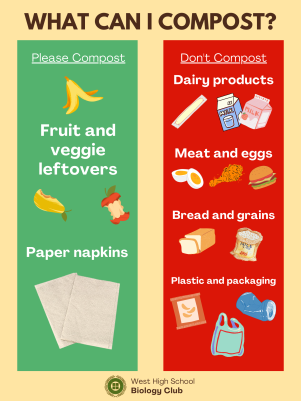
Do not throw away food scraps or yard waste ever again. Why? Composting! Composting is essentially the process of recycling organic material so that it can be used to enrich the soil and plants. Not only does it make great fertilizer, but it is also good for the environment and energy conservation, as it decreases greenhouse gases and reduces food waste. One way to achieve this is by recycling organic waste, such as food scraps and yard waste.
Based on a teacher proposal, Patrick Selby ’24, the founder of the Biology Olympiad club, made the decision to initiate a school composting program with his team, aiming to make West High a more sustainable environment.
“We had a bunch of meetings about what we could do. We talked about some ideas [like] beehives, composting gardens,” Selby said. “We had a lot of ideas, but then we kind of figured out that composting would be a good go-to because we wanted to have it be more biology focused [since] we are a biology club.”
We had a lot of ideas, but then we kind of figured out that composting would be a good go-to because we wanted to have it be more biology focused [since] we are a biology club.
— Patrick Selby '24
Despite the club’s plans, there was already another student who beat them to it. As a freshman last year, Sadie Frisvold ’25 applied for and secured a grant, and she used that money to purchase composting bins.
“I’m trying to think of ways to increase the school’s sustainability, and composting has a lot of benefits like reducing the carbon footprint and stuff from landfills,” Frisvold said.
Recognizing their shared ideas, both the club and Frisvold seized this special opportunity and joined forces to collaborate on the project.
“Once we figured that we knew we wanted to do composting, we had talked to Harms and Ziemer and then we found out that another person had already started the composting project, so we had to go to talk with them. And so we started collaborating with them, and it worked out really well,” Selby said. “We knew that we had to have a composting pile and bins, so it really helped us out when we knew that Sadie had already purchased bins.”
Amit Bhatt ’25, a club member, oversees public relations and actively participates in the planning procedures.
“The project is in its early stages and as of now. The main work we’re doing is setting the logistics up with administration and the custodial team as to when we’ll be collecting compost at lunch, and where and how we can process it,” Bhatt said.
The project is in its early stages and as of now. The main work we’re doing is setting the logistics up with administration and the custodial team as to when we’ll be collecting compost at lunch, and where and how we can process it.
— Amit Bhatt '25
After their club sponsor, Andrea Harms, introduced this opportunity, the team is now planning to apply for a $500 grant through the Iowa City Youth Grants. The Youth Grants are specifically for student-led initiatives that are part of the Climate Action Grants program. These grants are awarded to projects that benefit the community by promoting environmentally conscious actions.
“So the grant money that we’re going to use is to buy composting tumblers. Some of the composts that we collect [we will] put them in tumblers and hopefully actually start a garden here at West,” Selby said.
Despite making significant progress, their efforts have been delayed by the multiple stages involved in implementing physical changes in the school. As the communications person, Michael Lee ’24 has remained aware of this obstacle.
“And you also have to talk to the administrators but then again, we don’t know who to contact. We talked to this one person and they’re like, ‘Hey, you should reach out to this other person instead,’” Lee said.
In addition to coordinating challenges with the school administration, engaging with the city and its leaders also proved to be difficult.
“It’s a slow process. You have to get consent, start composting and then the city has to pick it up [and] take it to their composting facility,” Frisvold said. “I know like we’re trying to get bins [and] the city to pick them up like twice a week or whatever. But apparently, the city’s now going through new management so they’re all over the place right now. So they can’t get us the bins we need to actually compost things, [and] that’s why they’re not set up right now.”
Although encountering major obstacles, the team has diligently pursued solutions and remains optimistic about the future.
“Next year if we get the grant, we plan on purchasing what we need to compost on a large scale, such as aerators. To do this, we’re going to rely on every student to do their part, and compost after lunch. So, it’s important to know what you should and should not compost,” Bhatt said. “We envision a thriving compost infrastructure as a result of this project. It will tap into the unused resource of compostable materials at West High to benefit the environment.”
Your donation will support the student journalists of West High School. Your contribution will allow us to purchase Scholarship Yearbooks, newsroom equipment and cover our annual website hosting costs.
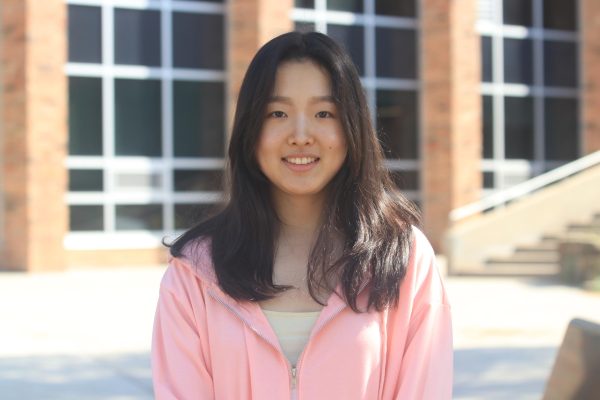
(she/her) Jessie Li is a junior at West High. This is her second year on staff, and she is the Assistant Copy Editor of the West Side Story news magazine....



